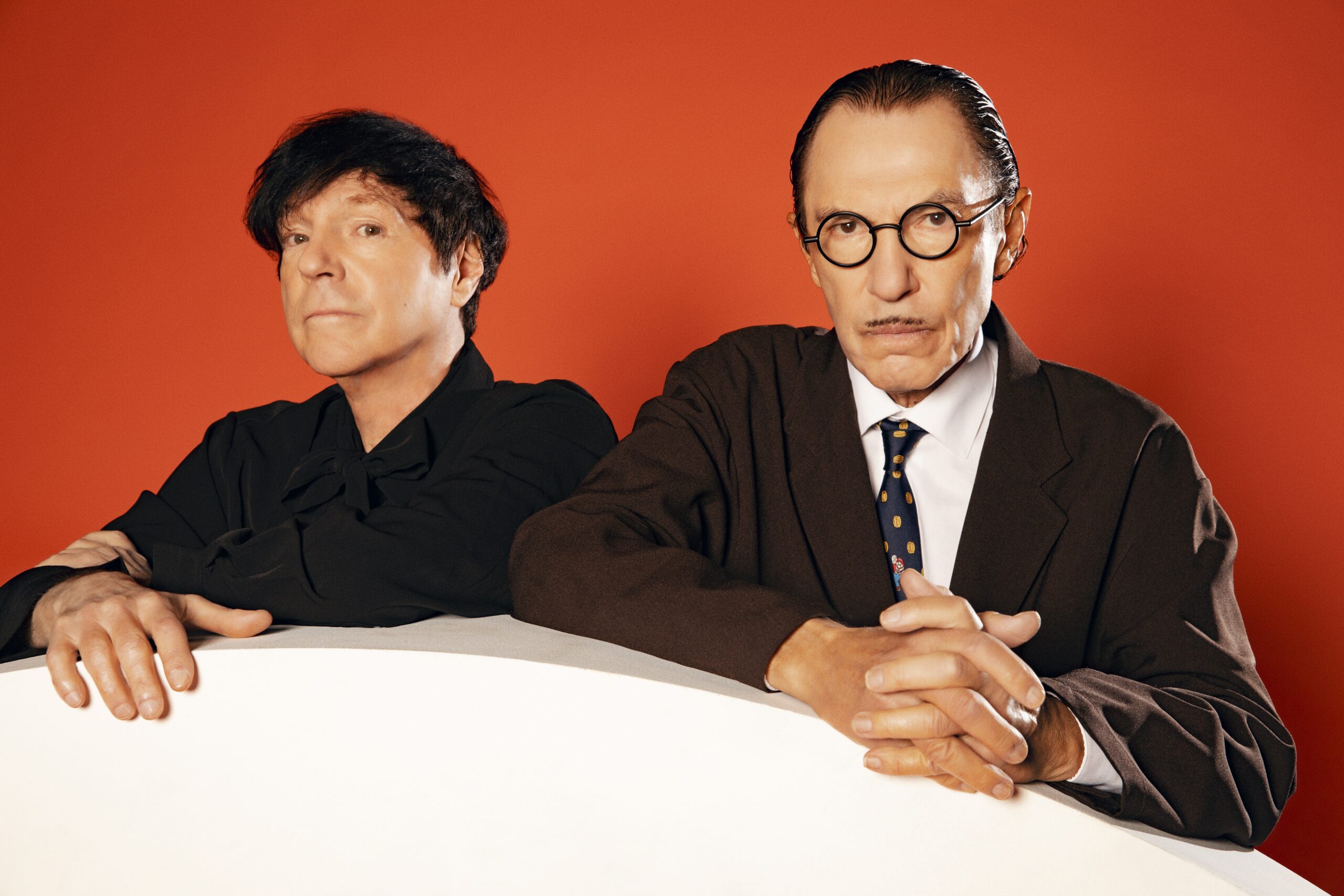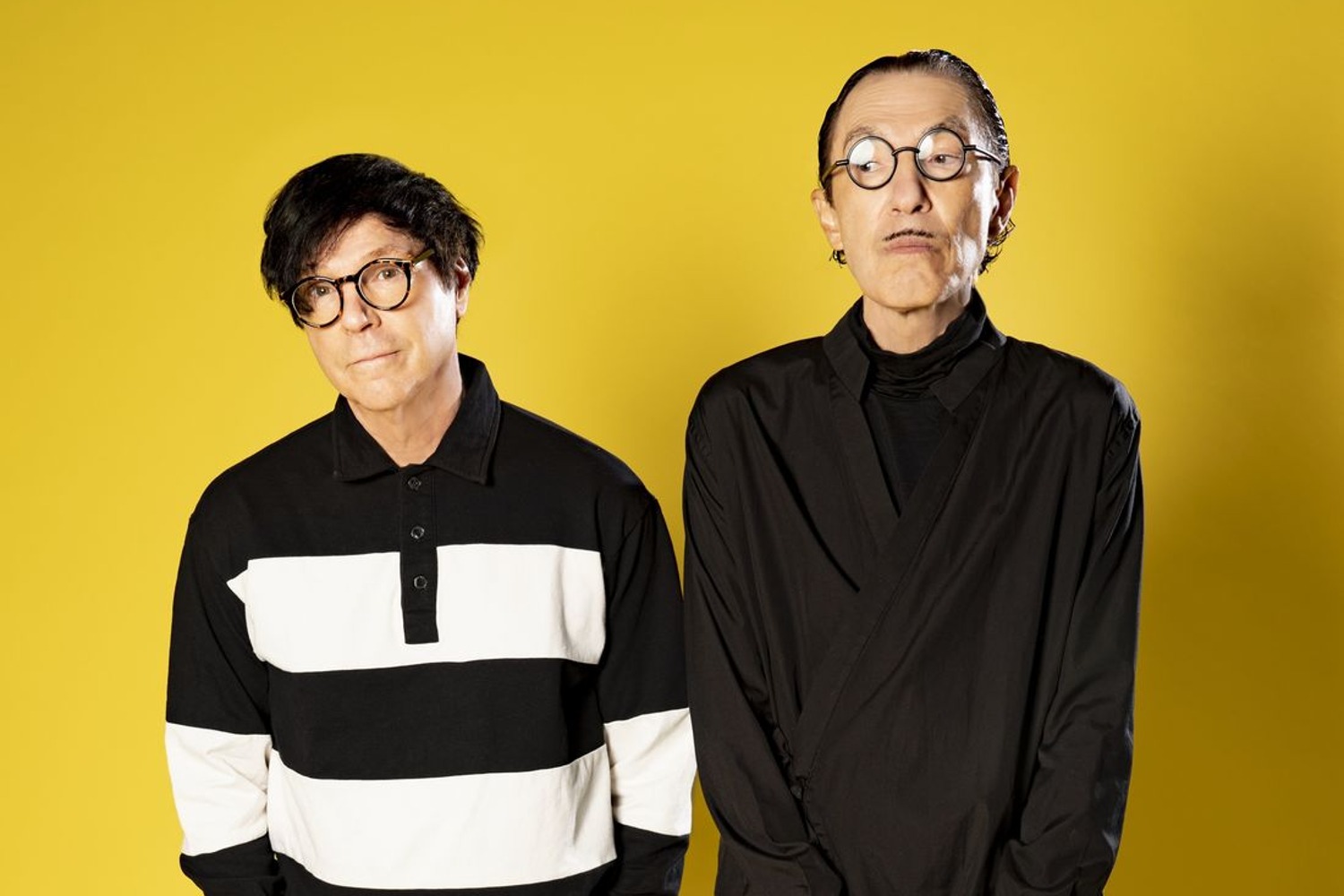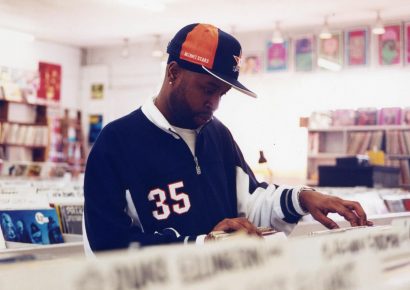Ahead of their return to Australia for the first time in 22 years, we sat down with Ron and Russell to discuss their remarkable rise over the past decade, as well as what fans can expect from their imminent return to the Southern Hemisphere’s stages.
Over the past couple of years, I’ve had the pleasure of interviewing many artists who have enjoyed late-career renaissances. Who, like Vincent Van Gogh in that one episode of Dr. Who, have had the privilege of experiencing, in real time, the soul-affirming validation that comes from their initially overlooked artistic output finally finding its audience, years, or even decades, after its initial release. Perhaps in no trajectory is this phenomenon more richly observed, than in that of California-born brothers Ron and Russell Mael, or as they’re better known, Sparks.
Read all the latest features, columns and more here.
Like many Millennial and Gen Z fans of the duo, I was first introduced to Sparks by their recent collaboration with French arthouse enfant terrible Leos Carax – the Adam Driver starring rock operetta Annette, as well as Edgar Wright’s documentary that lays bare their creative resilience and aptitude for reinvention over a decades-spanning, storied career. However, as fans of Sparks, whose high profile proponents include everyone from Beck, to Jack Antonoff and Cate Blanchett, whose lackadaisical dance moves are the centrepiece of the music video for “The Girl is Crying in Her Latte”, will agree: if you get it, you get it; once you’re in, you’re in. The band’s endlessly theatrical brand of art-rock, and transgressive, yet playfully inviting, campy visuals, quickly made this fast fan, a permanent one.
Though the band’s latest album The Girl is Crying in Her Latte sees their sound transported into the now by modern electronic production acoutrements, the sonic and thematic hallmarks that thread through Sparks’ expansive discography abound – mundane human anxieties, recalled with deadpan humour, dwarfed by a symphony of jittery synthetic textures and sugary new wave riffage. Hot off of the release of this fantastic LP, and ahead of their return to Australia for the first time in 22 years, I sat down with Ron and Russell to discuss their remarkable rise over the past decade, as well as what fans can expect from their imminent return to the Southern Hemisphere’s stages.
The last time you were in Australia was around 22 years ago, I wonder if the two of you could cast your minds back to then versus now – how have your lives changed as working musicians and touring artists?
Russell: More people obviously are aware of [the band] now. The first time we came to Australia, we played smaller venues, and we only played Sydney and Melbourne. It was coming over with the Balls album, I believe. It was really fantastic, the first time coming to Australia. And now coming back, in light of the developments that have happened since then, you know, it’s really taken on a whole new light. The documentary by Edgar really opened things up for us, and exposed what we’re doing to a lot more people. And Annette did the same thing, brought it to a lot of people that were, you know, fans of cinema but maybe didn’t know Sparks – they saw what we were doing musically in a whole other light.
So all that to say, coming to Australia now, after all of that time, and the developments that have happened since then, and this sort of upward profile for the band… we’re really excited now to be coming back under different circumstances than we did the first time we came here. You know, on a personal note playing the Sydney Opera House for us, this tour, we’ve gotten to play a bunch of really iconic venues – the Hollywood Bowl here in LA. We did two nights at the Royal Albert Hall in London, and we played Glastonbury Festival… so for us, the US foreigners, the Sydney Opera House just has the same kind of cachet of being, you know, really symbolic, whether it is or not, but of the country in our minds. And so we’re really excited about that.
Ron: After 22 years, it seems like there’s more young people coming to our shows. And that’s something that is really inspiring to us, and pushes us on, knowing that people who are kind of just discovering what we’re doing now, kind of consider us as a new band. One thing as far as the presentation, we’ve kind of taken things to a whole other level since that time. At that time, we were just playing as a three-piece band. Now we have a good six-piece band stage presentation. So I think we’re set.
I wanted to ask, with a catalogue as expansive as yours, and now having this younger generation of fans, and fans from different demographics – what have you been playing on these tours? Are you sticking to fan favourites and then playing the new record? Or is it a little bit of a mix of everything?
Ron: From all different periods – we always like to play, you know, a considerable amount, of the new album, and then there will always be some songs that we feel some people require us to do, that we’ll continue to do, we enjoy doing that as well. But we have so many obscure songs that we never perform live to choose from, and so we’re doing several of those on this tour. It’s something that kind of keeps us awake musically, to have to play something that we’re really unfamiliar with, and maybe have only done maybe a couple of times in the past. They’re not all that well known to people, but it all kind of fits together seamlessly in the presentation, it all sounds of a piece.
Russell: And I mean, the other positive thing about having this newer audience, being made aware of the band through those things we talked about, it shifts the focus of what was the “golden era” of Sparks – that for new younger people that have just become aware of Sparks, they’re not like attached to the 70s period or something, they don’t think ‘oh, Kimono My House was the period’, or that “Number One Song in Heaven” was the period, they kind of get exposed to what we’re doing via the more recent albums, and then maybe go back and listen to those older albums. For them, it’s all just a part of the big catalogue of material that we have. And so I think in a certain way, that’s also a healthier approach. We obviously like all the fans that have stuck with it from the beginning. But there’s kind of a really healthy approach and attitude from people that have just been made aware of the band in the more recent past, because they don’t have a lot of the older baggage that goes along with some of the lengthy history that we have as a band.
I was diving into your most recent album, and then flicking through your catalogue before this interview. You cover such a broad scope, sonically, but there’s always a thread – that real theatricality, a certain campness. Lyrically something that I really enjoyed about this most recent album, and also, the work you did for Annette, is the way you bring that theatricality to everyday anxieties, to the malaise of the modern condition. So I was wondering if you could speak to the new album, was that kind of the space you’re working from thematically, when you began? What did you set out to do with this record?
Ron: Well, I think that, despite any kind of changes to the way the songs are presented in a musical context, there’s a certain sensibility to everything that we’ve done and, you know, we’re kind of too close to it in a way, but, but people often mention that they feel that it has a cinematic quality. Not so much that it sounds like a movie soundtrack, or that it is, you know, citing a movie star, even though we have done that, but just that there’s kind of a scope, to what is there, a depth to the emotions that are presented within the song. We’re always aware that there is the element of humour in a lot of our songs, but we always try to balance that with an undertone of, more of an emotional feel than just a one line joke sitting on the top of the song. And so, hopefully, when songs are working right, it works on multiple levels.
And I think with the new album, you know, I mean, we had worked on Annette, and I think some of that has to kind of rub off on what you’re doing, even just things that you learned in a musical arrangement way. But I think just the genuine thing of hyped up emotions and, being able to have things that are in different styles bumped right up to each other, we don’t feel the need to have things seamless, at least in Annette, it wasn’t like we felt like it needed a continuity of musical styles. We really feel that with our albums, we would like to do the same thing, where they hold together in some loose way, but that between two, two tracks, there could be kind of an extreme change.
Something that I was really enthused about when I watched Edgar’s documentary was what big proponents you both became of home recording. It’s really empowering for artists to be able to get their ideas from a dreamy, creative airborne state into concrete form on their own. What does your home recording setup consist of these days?
Russell: We really think it’s only a positive thing that home music technology has kind of got better and less expensive at the same time, so that you can do really amazing things without being at the mercy of having a huge budget. When we first started, all of our albums were recorded in commercial studios, and there was always the factor of looking at the clock and making sure that decisions are kind of made halfway by, ‘well, we only have x amount of time left, we better make a decision fast’. And for us, we think it’s a positive thing. Now with our own studio, we can take as much time, for better or worse. You can take as much time as you want, and you’re not sitting there staring at the clock. The technology has become so incredible that you can do anything that you could have done in a studio, I mean, short of bringing in, you know, a 20 piece marching band into your home, but you can recreate that as well if you want to. So it’s only a positive thing from our standpoint, where we now feel that we can take the time to try things, and if they don’t work, then you’ve only lost the time – you haven’t lost time and thrown out money as well by being in a commercial studio. It’s a huge blessing to be working this way.
Ron: I think that it also has changed our songwriting method a bit. I mean, it’s added to the songwriting method, because in the past, when we worked in an expensive studio – you came in, you had songs, we would maybe demo them with a band or, or just demo them on our own, and then bring them into the studio. But now, I can come up with something, a completed, written song, and bring it to Ross’s place, and then we can figure out how to arrange it and record it. But then we can sometimes write, from just starting to record and, and coming up with something. A lot of times there, nothing will happen. But, but if something does, it’s something that would sound different than a song that you wrote, you know, that’s more strict in its form.
To wrap things up – I hear murmurings that you’re working on a new musical. Can you tell me a little bit about that?
Russell: Yeah, we have a new project. We’re really excited to be able to do what we’re doing but from another angle, where it’s not just strict songs for a Sparks album, but a narrative project. We were given the opportunity to go ahead and write the screenplay, and all of the music, which we finished, for this project called X Crucior, and it’s with Focus Features, that released the Edgar Wright documentary, they engaged us to do this. So we’re that far along with the project. And now we’re just kind of, hunting out directors and little small details like that.
Ron: One thing that is, was, really important for us, both with Annette and then also with this movie, is just the idea of the style of the singing. It was important for us to not have kind of big, Broadway belting, but for it to be kind of more naturalistic and, you know, both Adam and Marianne (Cotillard) were able – you feel presumptuous even, kind of telling them how you want this presented – but they really understood, you know, what the direction of the scene should be, and, we’re so, so pleased. Even with just that specific thing, that the style of the singing, in Annette and then hopefully, when this gets made, is not like a typical musical.

Sparks Australian Tour Dates:
Thursday 26 October 2023 – Palais Theatre, Melbourne – Buy Tickets
Sunday 29 October 2023 – Harvest Rock, Adelaide – Buy Tickets
Tuesday 31 October 2023 – Sydney Opera House, Sydney – Buy Tickets
Thursday 2 November 2023 – Fortitude Music Hall, Brisbane – Buy Tickets
For more Sparks, head to www.allsparks.com

